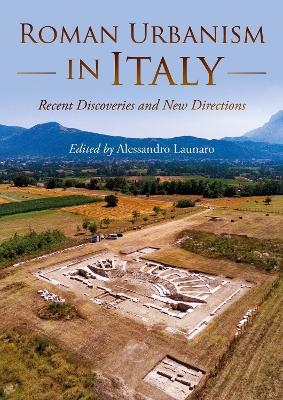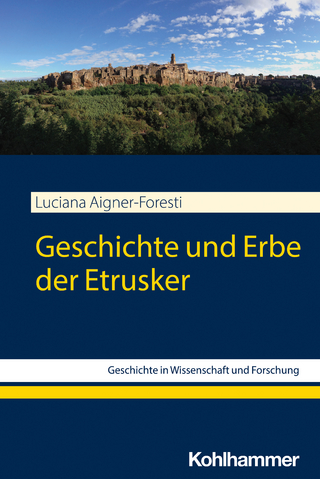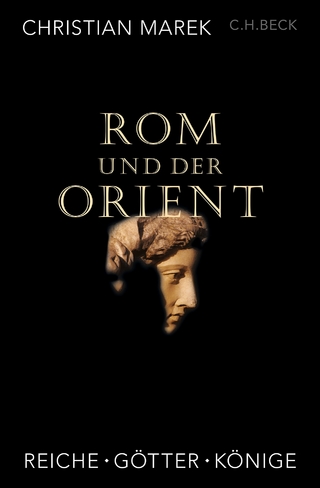
Roman Urbanism in Italy
Casemate Publishers (Verlag)
979-8-88857-036-4 (ISBN)
- Titel nicht im Sortiment
- Artikel merken
The study of Roman urbanism – especially its early (Republican) phases – is extensively rooted in the evidence provided by a series of key sites, several of them located in Italy. Some of these Italian towns (e.g. Fregellae, Alba Fucens, Cosa) have received a great deal of scholarly attention in the past and they are routinely referenced as textbook examples, framing much of our understanding of the broad phenomenon of Roman urbanism. However, discussions of these sites tend to fall back on well-established interpretations, with relatively little or no awareness of more recent developments. This is remarkable, since our understanding of these sites has since evolved thanks to new archaeological fieldwork, often characterised by the pursuit of new questions and the application of new approaches. Similarly, new evidence from other sites has since prompted a reconsideration of time-honoured views about the nature, role and long-term trajectory of Roman towns in Italy.Tracing its origins in the Laurence Seminar on Roman Urbanism in Italy: recent discoveries and new directions, which took place at the Faculty of Classics of the University of Cambridge (27–28 May 2022), this volume brings together scholars whose recent work at key sites is contributing to expand, change or challenge our current knowledge and understanding of Roman urbanism in Italy. The individual chapters showcase some of the most recent methods and approaches applied to the study of Roman towns, discussing the broader implications of fresh archaeological discoveries from both well known and less widely known sites, from the Po Plain to Southern Italy, from the Republican to the Late Antique period (and beyond).
Dr Alessandro Launaro is Associate Professor in Classics (Classical Art & Archaeology) at the Faculty of Classics of the University of Cambridge and a Fellow of Gonville & Cauis College, Cambridge.
List of contributors
1. Introduction
Alessandro Launaro
Part I. Methods and approaches
2. Approaches to Roman urbanism in Italy: the example of Falerii Novi
Martin Millett
3. The changing face of the eastern Caelian in the 1st–4th centuries AD: work by the Rome Transformed Project
Ian Haynes, Paolo Liverani, Thea Ravasi & Stephen Kay
4. Luck is in the research method: Aquinum, the rediscovery of an ‘invisible’ town
Giuseppe Ceraudo
Part II. Beyond the textbook
5. Cosa, Orbetello, and the genesis of a colony
Andrea U. De Giorgi
6. The archaeology of Fregellae: an update
Francesca Diosono
7. One should always dress like a marble column (Jackie Kennedy-Onassis): new insights on the urbanism of Alba Fucens
Cécile Evers
Part III. Not your standard Roman town
8. From sanctuary to settlement: mapping the development of Lucus Feroniae through geophysical prospection
Stephen Kay, Sophie Hay & Christopher Smith
9. Septempeda: integrated approaches for revealing a ‘small town’ in Picenum
Frank Vermeulen
Part IV. Roman towns in the longue durée
10. Lunae: new perspectives from recent archaeological fieldwork
Simonetta Menchelli, Paolo Sangriso, Silvia Marini & Rocco Marcheschi
11. Interamna Lirenas: how special?
Alessandro Launaro
12. A town and its road: Aeclanum on the via Appia
Ben Russell & Girolamo F. De Simone
Part V. Late Antiquity and beyond
13. New archaeological perspective on Late Antique Aquileia
Patrizia Basso
14. Bridging the gap: new data on the settlement continuity in Parma from the stone bridge
Alessia Morigi
15. Conclusion: recent discoveries and new directions
John R. Patterson
| Erscheinungsdatum | 14.12.2023 |
|---|---|
| Sprache | englisch |
| Maße | 170 x 240 mm |
| Themenwelt | Geisteswissenschaften ► Archäologie |
| Geschichte ► Allgemeine Geschichte ► Altertum / Antike | |
| Geisteswissenschaften ► Geschichte ► Regional- / Ländergeschichte | |
| Sozialwissenschaften ► Soziologie | |
| ISBN-13 | 979-8-88857-036-4 / 9798888570364 |
| Zustand | Neuware |
| Informationen gemäß Produktsicherheitsverordnung (GPSR) | |
| Haben Sie eine Frage zum Produkt? |
aus dem Bereich


